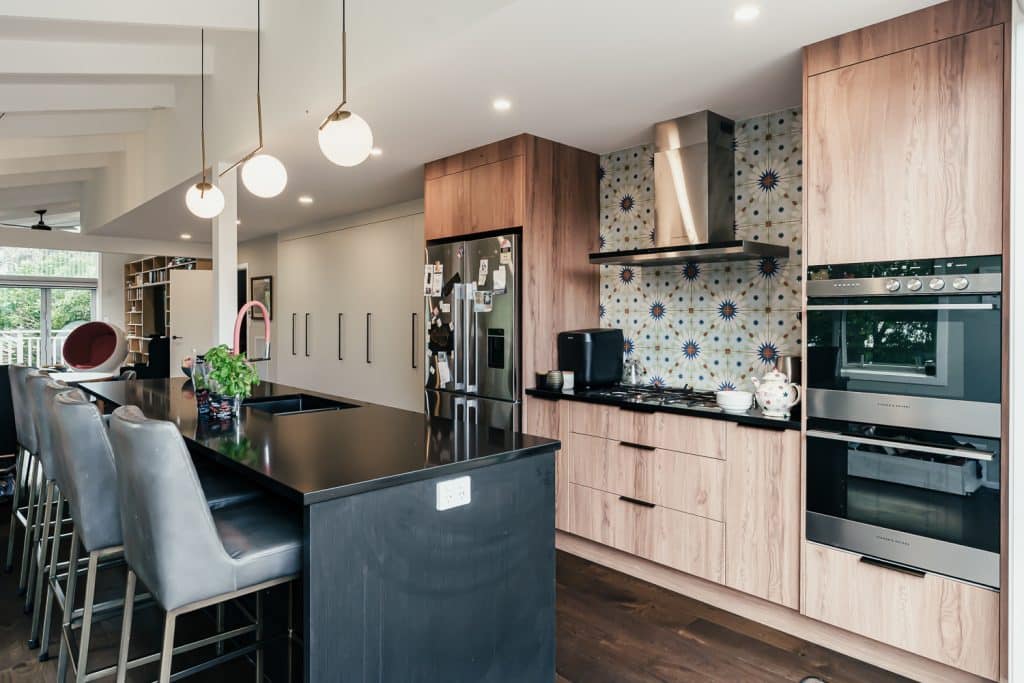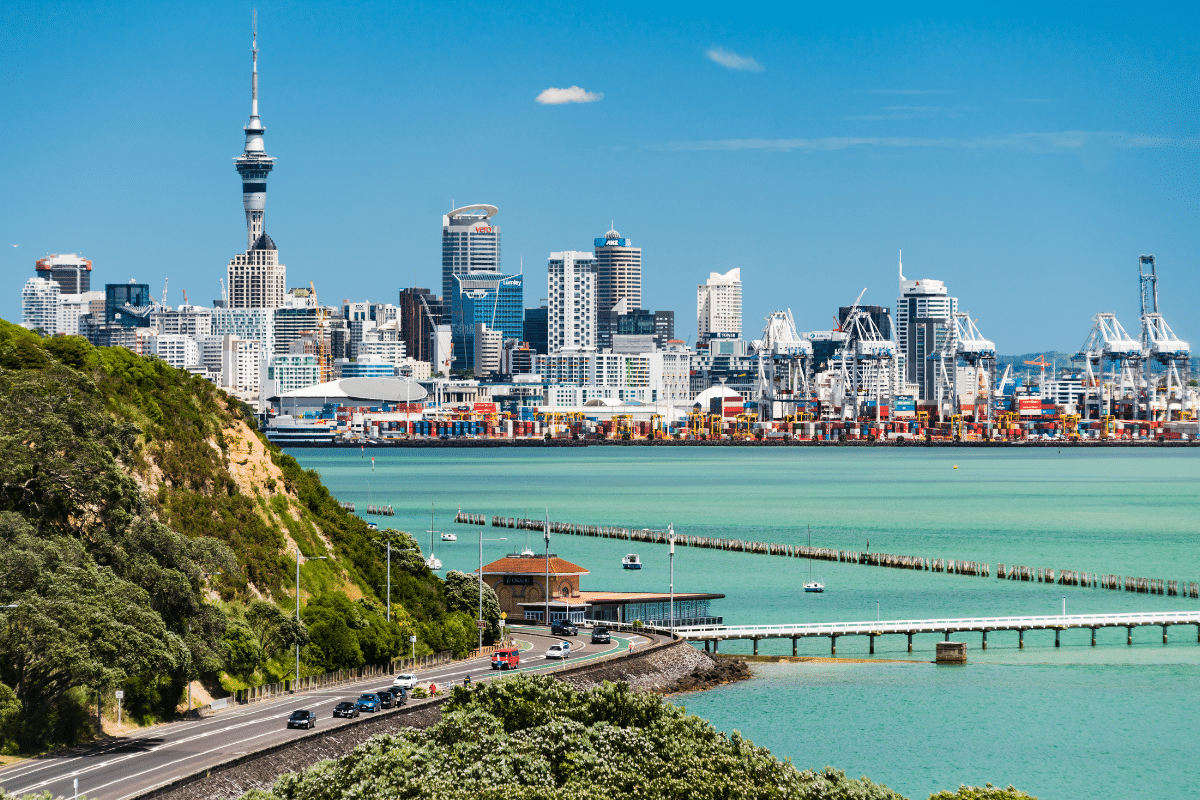You’ve been envisioning your ideal home—from its design to the unique touches that make it exclusively yours.
You’re eager to take the plunge, yet concerns about expenses have left you guessing.
You’re not alone in this. In Auckland, the cost of constructing new homes is a widespread worry, particularly for first-time homeowners.
But don’t let this put you off. In this guide, we will explore the costs associated with new home builders in Auckland.
JRA Construction is dedicated to providing you with clear insights, helping you confidently navigate the journey towards your dream home with well-informed decisions.
WANT AN INSTANT ONLINE ESTIMATE FOR YOUR PROJECT?
Your Investment Breakdown
Let’s delve into the core: the new build cost components.
This cost breakdown table will give you a clear idea of where your investments will go when undertaking a new home build in Auckland.
| Items | Percentage of Total Cost |
|---|---|
| Land Purchase | 50% – 58% |
| Council Fees | 2% |
| Building Materials | 17% – 20% |
| Labour | 13% – 15% |
| Utility Installation | 2% |
| Interior Design | 3% – 5% |
| Landscaping | 2% – 3% |
| Miscellaneous | 3% – 4% |
| Estimated Total Cost | 600,000 – 1,000,000 NZD |
Land Purchase
Acquiring the land to build your home is a pivotal step. The pricing range can be wide due largely to the location and size of the property.
Auckland, known for its stunning harbour views, beautiful beaches, and vibrant city life, comes with a competitive real estate market.
Keep in mind the following price range when considering land in Auckland:
| Location | Average Land Price Per m2 (NZD) |
| Central Auckland | 1500 – 2000 |
| North Shore | 1000 – 1500 |
| Manukau | 800 – 1200 |
| Waitakeres | 700 – 1000 |
Note: These are approximate costs and can vary depending on different factors.
Key Points
- Location: Land in central suburbs or properties with scenic views usually come with a heftier price tag.
- Maturity of the Subdivision: Newly developed areas might be cheaper than established residential areas.
Tips
- Future Developments: Keep an eye on future development plans in the area. A new school or shopping centre might increase property values.
- Local Market Research: Connect with local real estate agents or use online platforms to get an understanding of the land prices in your desired location.
- Compromise: If budget is a concern, consider making a compromise on the location. Peripheral suburbs might offer larger plots for lower costs.
Remember, while land is a crucial deciding factor in your new build costs, making a well-informed decision can help you strike a balance between your dream location and affordability.
So, do your homework, consider your options, and choose wisely.
Council Fees
Council fees are an integral part of your new build budget. This cost aspect covers everything—from construction permits, inspections, and consent processes to meeting various building regulations and standards.
These fees are in place to ensure that your new build adheres to all local and national standards: safety, sustainability, and utility. They are designed to help secure a safe and compliant environment.
A Closer Look
- Resource Consent: Depending on the nature and scale of your project, you may need to apply for resource consent. This consent ensures your property aligns with land usage, environmental standards, and its impact on your community. It's like obtaining your neighbourhood’s vote of confidence.
- Building Consent: It's the council's green light that your building plans comply with the Building Code. It involves submitting detailed documents of your project, including site and floor plans, elevations, cross sections, and foundation, roof, and wall bracing layouts.
Council fees often contribute to only about 2% of your total build cost, but fail to consider this in your budget, the costs can creep up on you. Also, it’s not just the costs but the processing time that can impact your project timeline.
Building Materials
When building your dream home, the materials you choose can heavily impact both your budget and the overall look of your house. Selecting the right building materials should be a balance of aesthetics, durability, cost, and sustainability.
Consider the image of the house you have in your mind—is it a modern minimalist design, a charming timber character home, or perhaps a robust brick build? The materials used will significantly influence the overall style of your house.
Here’s a simple checklist of some common building materials you might need to consider:
- Bricks: Durable, low maintenance, and excellent thermal performance
- Timber: Versatile, environmentally friendly, and provides a natural aesthetic
- Concrete: Extremely strong, resistant to fire and wind, and excellent for modern designs
- Stone: Durable, weather-resistant, and gives a timeless classic look
- Steel: Durable, recyclable, and perfect for modern industrial style homes
- Glass: Great for natural light, views, and modern designs, but consider energy efficiency
- Sustainable Materials: Consider eco-friendly options like bamboo, reclaimed wood, or recycled steel
Choosing high-quality, durable materials may seem costly upfront, but it can save you on repair and maintenance costs in the long run. However, if you are on a tighter budget, there are many cost-effective and good-quality alternatives in the market.
Building materials make up a significant chunk of your new build cost, but they also determine the longevity, sustainability, and aesthetic of your home. It’s always wise to invest some time researching and choosing the right materials for your home.
Partner with your home builder now to discuss your vision, your budget, and your priorities.Labour
Labour costs are another significant part of new build costs. This typically covers the wages of professional builders, engineers, architects, and any other workers involved in constructing your dream home.
The exact cost can vary drastically. It’s often influenced by factors such as the size and complexity of your build, the location of your site, and the building company you choose to collaborate with.
To illustrate:
| Labour Component | Rough Estimate (NZD) |
| General Labourers | 25-35 per hour |
| Licensed Builders | 45-55 per hour |
| Electricians | 70-90 per hour |
| Plumbers | 70-90 per hour |
Note: These are approximate costs and can vary depending on different factors.
Labour costs may be a significant portion of your budget, but hiring skilled and reliable professionals is an investment that leads to better construction quality, potentially saving you from more costs down the road. Cheapest is not always best in the long run, so don’t compromise the overall result with substandard workmanship.
Utility Installation
The installation of utilities—electricity, water, internet, gas—comes with its own set of costs. Some of these might be covered in your builder’s quote, but always double-check to avoid surprises later.
Budget depending on property location and connection requirements:
- Water Connection - Typically $5,000-$15,000 to install main lines from the street to your property and connect to internal plumbing. Connecting to council mains can be more expensive than getting shared connections through neighbouring properties.
- Power Connection - Expect to pay $4,000-$12,000 to get power lines installed from the utility pole to your house and for installation of the internal electrical wiring by a licensed electrician before sign-off.
- Broadband Connection - Prices vary by provider but count on $2,000-$5,000 for connection and internal cabling for phone/internet ports throughout the home.
Interior Design
Interior design expenses can differ dramatically based on personal taste and aesthetic choices.
This covers the costs of everything in your indoor space, from flooring and paint to lights, window treatments, cabinetry, and more.
Adopting a DIY approach, shopping sales, or repurposing older furniture are ways to cut costs.
But, investing in professional design can elevate your space to the next level, providing you with a cohesive and highly personalized interior.
While interior design may seem an optional expense, consider it an investment in turning your house into a home—a place that truly reflects you and enhances your daily life.

Landscaping
Landscaping costs include the design and creation of outdoor spaces. This can range from basic ground leveling and grass planting to elaborate gardens, patios, and outdoor entertainment areas.
Professional landscaping can boost your property’s visual appeal and consequently its value. Whether you dream of a basic backyard or a flashier outdoor space, remember to factor this into your budget.
Consider:
- Driveway/parking (may be included in base build budget)
- Outdoor lighting/power
- Irrigation system (can save watering time vs manual watering)
- Outbuildings like studios/garages
- Garden ornaments/furniture
Miscellaneous
Every build will have its sundry or miscellaneous costs. These could be from unforeseen issues during the building process, last-minute design changes, or the unexpected need for particular materials or services.
Here are 5 surprising miscellaneous items we’ve seen homeowners encounter:
- Tree Removal - If there are mature trees on your property, removing them can cost you, depending on size and specialist equipment requirements.
- Rock Excavation - You may discover rocky soil or outcrops during site works requiring blasting or digging with heavy machinery, hiking up land prep costs.
- Additional Consents - Modifying plans halfway through the consent process or unforeseen consent conditions from the council can tag on another cost.
- Weather Delays - Weather that prevents critical works like concreting or framing from proceeding as planned can result in idle crew if it pushes timelines out.
- Underfloor Insulation Required - Upon lifting the flooring, the builder discovers the ground is colder than expected and the underfloor will be needed to meet the code.
Being mentally prepared for minor twists helps roll with minor setbacks financially. While these extra costs can be challenging to predict precisely, a contingency fund provides essential cushioning.
Miscellaneous expenses might seem like a hassle at first, but they help ensure that the building process runs smoothly and you receive a high-quality finished product that you can be proud of.
BONUS TIP: Join Local Buyer Groups and Networks
While budgeting alone can be empowering, there’s strength in numbers when it comes to finding discounts and deals. Joining online new build forums or local buyer groups connects you to insightful suggestions or recommendations from experienced homeowners.
Schedule Your FREE Consultation
Building your dream home is a significant investment—both financially and emotionally. But with sound choices and careful budgeting, your dream home can be a reality.
Now you’re armed with this comprehensive knowledge, we at JRA Construction believe in your ability to make informed choices.
Remember, our dynamic estimate calculator is just a click away for you to start moulding those dreams into concrete plans.
We can’t cover everything, though.
Have more questions? Eager to get started with your project? We would love to discuss your plans! Fill out the form below for your FREE consultation.
Your path to your new home in Auckland is more than just numbers.




